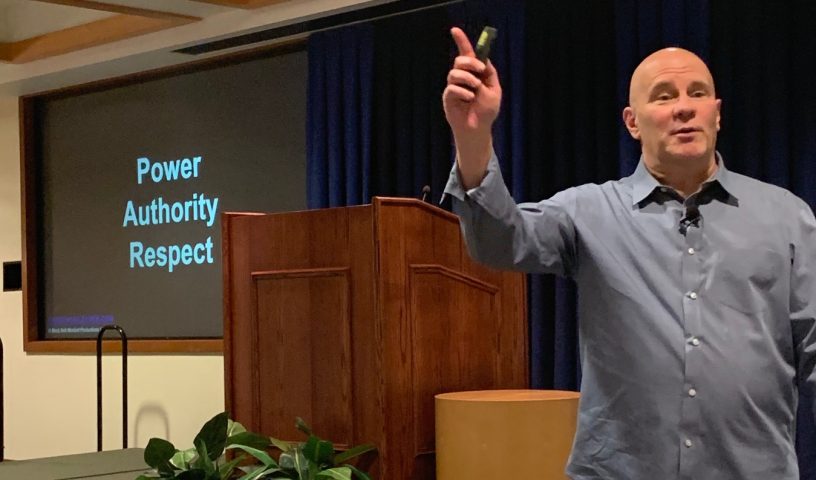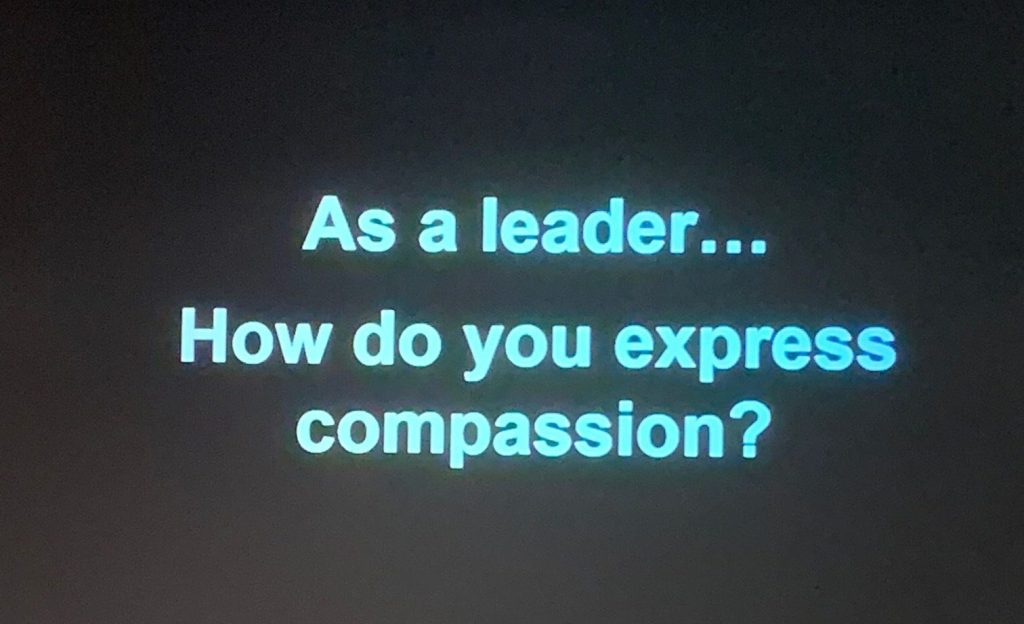
By: Amanda Abernathy, Associate Program Manager
The following event was hosted by the UPMC Enterprises FLIGHT organization for the general public to encourage an open dialogue on leadership, education, and empowerment in the health care and technology industries.

Many unorthodox visions filled my mind as I prepared to attend UPMC Enterprises FLIGHT event featuring speaker Jim Bouchard, the Sensei Leader. Would he be dressed in full Karate gi with his blackbelt, demonstrating karate moves and explaining how they relate to leadership? Would he be in a suit, standing rigid behind the podium, pontificating like the disciplined master that he is? I was pleasantly surprised to enter the venue and find Jim Bouchard, a happy, relaxed man wearing jeans and mingling with the crowd. There were over 60 people who attended Jim’s lecture and everyone was sitting on the edge of their seat to hear him speak. Before he began his presentation, I was fortunate to spend some time speaking with him. Something he said during our conversation set the tone for the whole evening. He told me, “One of the best ways for us to grow is to accept leadership.”

Mr. Bouchard’s theory on leadership is based on the principles of a karate sensei. Being a sensei leader requires three key attributes: inspire, empower, and guide. These attributes are attained and maintained through a system of philosophy, strategy, and action. The strategy phase of the system is packed with powerful principles. Each of the eight principles touches on a different aspect of leadership. The first principle urges the leader to never limit themselves to one leadership style. Leadership style should be adapted to circumstances, conditions, and people. Another of the principles prompts the leader to commit to personal and professional mastery. In a world of constant change, a leader should always be learning. Yet another principle asks the leader to be a teacher, coach, and mentor. Leaders should facilitate their team members in becoming their very best. The final principle calls for the leader to share, not accumulate. Transparency and involvement encourages engagement from the team and shows them that they are respected. One aspect of Mr. Bouchard’s presentation that struck me was his differentiation of management and leadership. He began his explanation with the following quote, “You manage things. You lead people.” from Rear Admiral Grace Murray Hopper. Society is moving away from the old model of command and control of employees because leadership has nothing to do with authority. It is a process of transformation for the leader and the team. All of Mr. Bouchard’s principles aim to support and grow the team and the leader. Mr. Bouchard points out that when a leader elevates a team, the team elevates the leader as well.
During his presentation, Mr. Bouchard elevated the audience. He weaved through the crowd as he delineated his principles, inciting participation with candid questions and engaging attention with profound anecdotes. He unabashedly spoke of his journey from drug addict to leadership activist, speaker, and author. The presentation was punctuated by emotional memories and laugh out loud moments. Part of me was disappointed that Mr. Bouchard did not provide any karate demonstrations but what he did provide was solid, practical leadership advice grounded in authentic experiences. I left Jim Bouchard’s presentation ready to grow myself and accept leadership, and I know I wasn’t the only one. I will leave you with some other attendee’s comments:
“Remember to continue empowering others to lead their efforts, even when they don’t want to do so.”
“I think these sessions are often helpful in identifying and replicating good leadership around me. I am now thinking about focus and how to be more focused in my approach to leading and moving forward.”
“For me, it was a great reset on leadership mentality and how leaders are viewed.”


